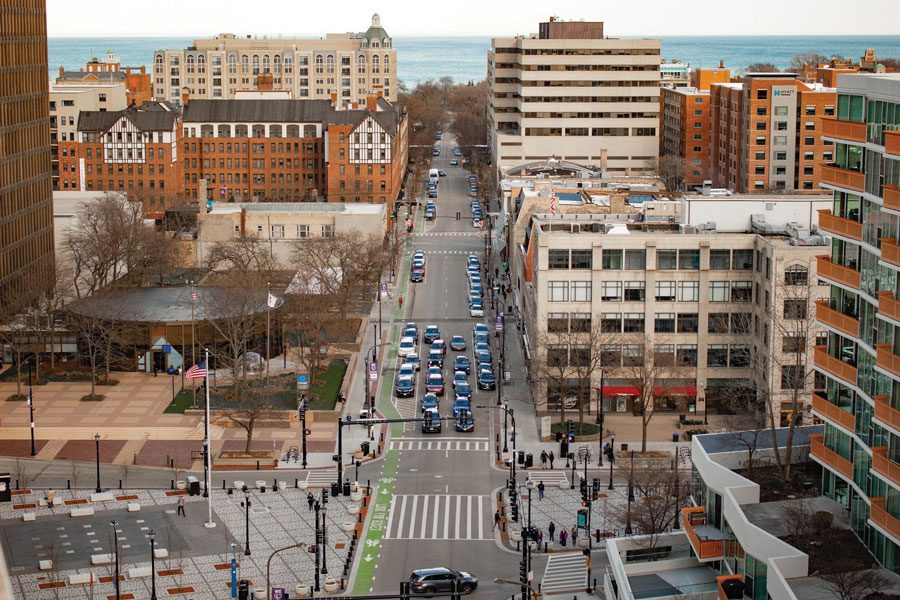Illinois to utilize community organizations for online Census outreach
Evan Robinson-Johnson/Daily Senior Staffer
A view of Evanston from above. Many in Illinois are at risk of being undercounted in the upcoming Census.
September 26, 2019
Evanston will use community organizations to ensure as many people as possible are counted in the 2020 Census.
The list of groups that are a challenge to count is a long one, including immigrants, young children, seniors, millennials, the homeless, snowbirds, renters, the poor, college students and recent graduates. Theresa Le, a partnership specialist with the U.S. Census Bureau, said all of these groups have a greater risk of being undercounted in the 2020 Census, which will be the first one to be conducted primarily online.
To help ease this burden, she said hiring people to help count from the communities being counted can help yield better results.
And in Illinois, investing in the best possible census may prove crucial — both politically and financially.
The U.S. Census provides more than just a count of the country’s population. Its results distribute federal funds and political representation for states and municipalities.
Following Illinois’ population loss of more than 150,000 residents over the last five years, projections have Illinois losing at least one of its electoral college votes and a congressional representative, according to the Brennan Center for Justice.
Beyond the distribution of political power in Illinois, Le also said there are economic benefits to an accurate count, as well.
“Over $675 billion in federal funding goes out to local governments,” Le said. “Think about school lunches. Think about special needs grants.”
And though political organizations cannot officially work on census efforts, Democratic Party of Evanston president Michelle Jordan said the local party will be promoting and encouraging its members on social media and other outlets to fill out the form.
“It’s a fairness issue, it’s an equality issue,” Jordan said. “We want a full count because it’s the right thing to do.”
In that pursuit of a complete count, Evanston plans to utilize many tools to reach people. Sarah Flax, the division manager of housing and grants for Evanston, said the process is “complex,” but has not been deterred by the challenge.
Evanston has taken part in a U.S. Census Bureau program and formed a Complete Count Committee — a group of community leaders from many organizations that work to educate and motivate residents to participate in the decennial count.
Working with community institutions like libraries and faith organizations will prove key to the count, Flax said. Libraries are a safe space to fill out the forms on the Internet, she said, while faith-based groups can give people a sense of trust to reach those who may not respond to government outreach.
Residents will get three paper mailers over the course of the year, encouraging them to go online to fill out the form. But if there is no filing after those three, traditional counters, called “enumerators,” will go to individuals for their information.
Le urges people to fill out the questionnaire, stressing its importance in multiple facets of everyday life.
“To ensure your quality of life for the next ten years,” Le said, “Make sure you fill out this survey.”
Email: [email protected]
Twitter: @zamoneperez


